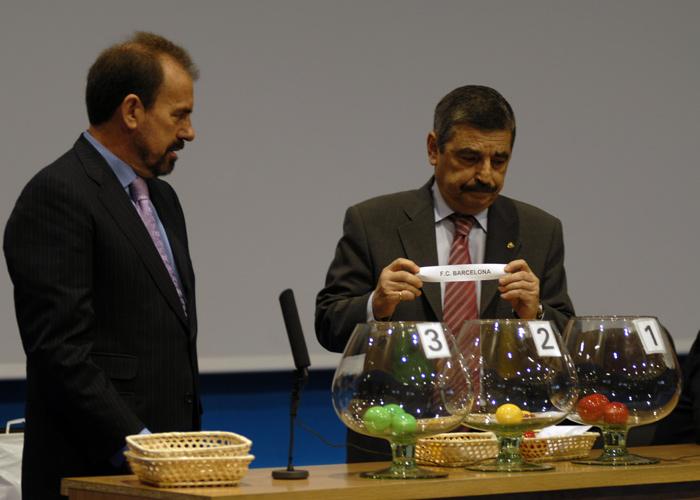Of course I must admit that sometimes I have started speculating about an event when I have seen the result of the draw. And it is of course legitimate to discuss what might happen, even if the event in question will not take place for another six months. But sometimes the euphoria seems a bit excessive, and one almost gets the impression that the media create a hype to have something to get excited about and write about when there is no event currently going on.
But it then seems to go a bit far when team representatives are being interviewed, and much of the story is focused on bad luck in draw, or unfairness in the seeding even before the draw has been made, seemingly to create some excuses for the possibility of bad results when the event finally takes place. Examples of this artificial excitement have been seen recently, during the month of June, when the draw for the Men’s European Championship in January 2012 took place, and when the seeding both for the Women’s World Championship in December and for the EHF 2011-12 Champions League were announced.
We all know that the preliminary round of the Men’s European Championship is always very tough, typically with 14-15 really strong teams out of 15. So even of three teams from each group of four go on to the next round, it is critical first to have some relative luck with opponents in that first round, and then, when looking ahead, also with the teams placed in the neighboring group on the same half. I cannot remember having such a unanimous sigh of relief as among the four teams in Group B: Germany, Sweden, Czech Rep., and FYRO Macedonia. They were in a sense insulting each other by talking excitedly about how lucky they had been. I would not want to be the part of the team that fails to qualify from that group. What possible excuses will they have? Perhaps the bad referees…
By contrast, there has to be a ‘group of death’ in every event. And if perennial champions France and recent bronze medal winners Spain are drawn in the same group, that certainly is enough, And if you add Russia and Hungary to that mix, then one can understand if the optimism is not so great. If one then, like France and Spain undoubtedly want to do, look ahead to the next stage, it is not exactly reassuring to know that three out of the group with Croatia, Island, Norway and Slovenia will be waiting there. In Slovenia they talk especially about the game against Croatia, but in Croatia they seem to be more concerned about the tough battle they always seem to have against Iceland.
On the women’s side, the draw will not take place until July 2, when the PanAmerican Championship finishes. But there has already been some grumbling about the caprices of how the teams have been placed in seeding groups. The second category finds Kazakhstan mixed in with Denmark and France, while the unpredictable opponents from Angola and Brazil are on the third line. Germany, who were a surprise qualifier against Hungary, after the dismal exit from the European Championship, now find themselves down on the fourth line together with Korea. Which team from a higher level would want to see Korea being drawn into their group? Finally, China and Spain have had to accept a fifth-level seed, but they are surely capable of causing surprises. So the final draw will surely be a nerve-racking affair for the participants and their supporters.
Finally, the seeding of the men’s teams for the next Champions League has already created a stir. First, of course, there was the issue of which teams would be allowed to compete for the wild-card entry. For some reasons that are hard to understand, the EHF open mentioned five candidates for four slots, and then went ahead and left one team out without any clear criteria. But perhaps Skjern on the men’s side were being ‘punished’ for the fact that their Danish compatriots Viborg were given a wild card chance on the women’s side.
As the draw is not directly based on the relative qualities and results of the individual team but rather on the rankings within the countries, there are some seemingly odd outcomes. For instance, Chekhovski and Montpellier were placed in category 1, whole Ciudad Real and Kiel had to accept line 3. And in between there are teams like Veszprem, Croatia and AG on line 2. But the lack of grumbling may have been the effect of the EHF’s rules being clear, which they apparently were not for the Men’s EURO 2012.
What makes the draw a little bit anticlimactic is that, just as was the case in 2010-11, there seems to be a demarcation between the top 16 team and the eight teams that will complete the groups. In other words, it might not matter much for the better teams which group they are drawn in, because as long as four teams out six advance, there is not too much of a risk for them. The risk is instead, for neutral observers who simply want some excitement, that again the whole group phase will be a long, boring ‘transportation stage’. Let’s keep our fingers crossed for some surprises and unexpected thrills.

